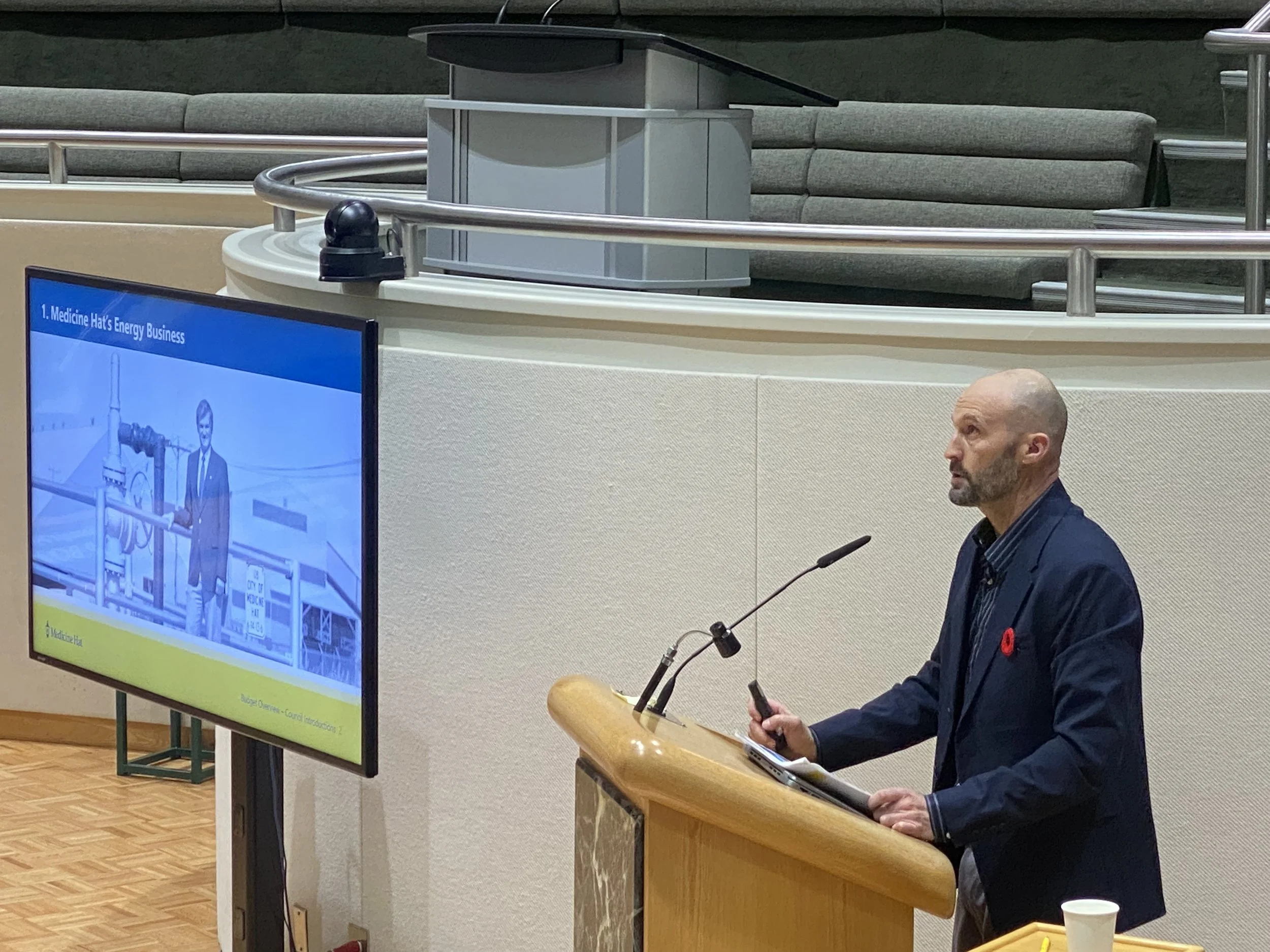Budget Amendments for City Energy Unit Coming
With budget amendments on the horizon for Medicine Hat’s energy division, council was given a breakdown of the current structure of the city unit during Monday’s meeting.
Travis Tuchscherer, city director of energy marketing, gives council an overview on Monday of the municipality’s energy division in advance of expected budget amendments for the business unit. (Photo Kelly Allard)
The energy division may have a history of successfully providing a bounty for city coffers, Travis Tuchscherer, city director of energy marketing, cautioned councillors about the challenges the business unit is now facing.
“I want to highlight the past does not define our future,” he told councillors.
The energy division continues to generate profits, but certainty remains elusive as to the future of carbon pricing, the impact of regulatory changes to the provincial deregulated market and the funding source to close a $58 million gap in well reclamation.
But despite those challenges, the city continues to provide the lowest priced utilities in the province, said Tuchscherer, even considering the proposed new rates anticipated to be set next week.
“(Citizens’) costs will be $70 per month lower than the average municipality in Alberta,” he said regarding gas and electric distribution.
But a municipality owning its own integrated utilities comes with risk, added Tuchscherer.
“There is definitely commodity cycles, boom and bust pricing cycles. On the gas production side, our reserves naturally dimmish over time and there is also post-production costs to abandon and reclaim wells,” he told council.
On the last point, the city is currently estimating it will cost $138 million for reclamation of its 2,900 sites with the reserve fund struck to fund the environmental liabilities currently at $75 million.
And the gas division is set for a nearly $18 million loss in its 2026 operating budget.
Changes in the provincial carbon tax on large CO2 emitters regulations has also resulted in some instability with regard to pricing, accessing offsets and their availability as well as lowering thresholds which trigger payments.
The city has paid nearly $31 million to the provincial carbon tax fund between 2021 and 2024, council heard, with more than a third of that paid in the 2023 peak production year.
In response to a question by Coun. Chris Hellman regarding recouping the carbon tax funds, Tuchscherer stated the city would need an eligible energy efficiency project first.
“We don’t necessarily get any (funds) back. It’s only if you have an energy efficiency project you can apply to get money back,” said Tuchscherer in response to Hellman.
Tuchscherer later stated solar projects would not be eligible for that funding, though he noted the federal government has an investment tax credit program the city is looking into for the Saamis Solar Project.


